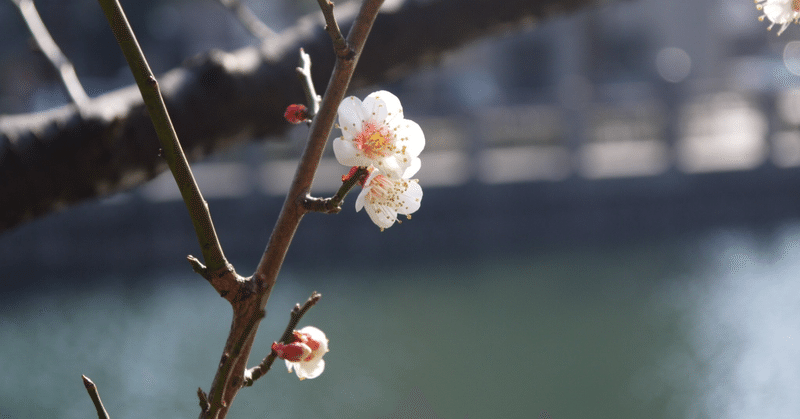
TEDと英語で人生を豊かに「Grit: The power of passion and perseverance」(やり抜く力:情熱と忍耐のパワー)
こんにちは。
TEDから著名な研究者のスピーチを引用させていただき、英語を学習するとともに、その研究結果や考え方を学ぶためのnoteです。
英語のスピーチを区切り、和訳と英文を掲載しています。
和文の英訳をトレーニングする取り組みですが、noteに掲載することで、誰かの英語学習に活用していただけると思い、公開しています。
英文音読するも良し、日本語訳で内容を読むのも良し、
英作文し、英文スピーチと比較して見るも良し、
英文読解するも良し。
TEDスピーチの要約も掲載しています。
英語学習とともに、先鋭的かつユニークな考え方も学んでしまいましょう。
要約
今回はAngela Duckworth(アンジェラ・ダックワース)さんの
「Grit; The power of passion and perseverance」
(グリット: 情熱と忍耐のパワー)
要点をまとめると以下のようになります。
成功のカギはIQだけではない。
グリット(やり抜く力)が大きな成功因子である。
やり抜く力は才能とは関係なく、育てることができる。
やり抜く力は「成長志向」で育てることができる。
成長志向とは、学習の能力は固定されておらず努力で変えることができるという考え方。
成長志向の持ち主は、失敗は永続的な状態でないと信じることができる。
所感
「Grit」を英語辞書で調べてみると、
名詞:①砂、小石 ②砂岩 ③(どんな苦難にも耐える)根性、ガッツ
動詞:①(凍結した道などに)砂、小石、塩をまく ②歯を食いしばる
とあります。感覚的にはGrip、何かに食い下がる、しっかりとついていく、という意味合いが、困難な試練やトレーニングを続けるという概念に結びつき納得できます。
「やり抜く力」はただそれだけでは機能しないものだと思います。
このスピーチの中でもあるように、やり抜くための推進力として「成長したい」「目標を達成したい」といった向上心、成長志向、成功を信じられるチカラが行動となって現れたものが「Grit:やり抜く力」だと感じます。
ここからは疑問。心理学者としてスクール生や教師、ビジネスマンが成功を収めたか、その各人はどれくらい頭の良さとは異なる「やり抜く力」を持っていたかを調査研究したことを称賛したいと思うが、中には
「やりたくてやってるがなかなか結果が出ない者」「さほど意欲はないが、要領よくできてしまっている者」が存在しているはずだ。
情熱を持って、我慢して、成長したいという意志があれば「やり抜く力」が生まれることは理解できる。
しかし、要領の悪さを改善し、要領の良さで成果を加速させるといった、能力とモチベーションとの関係性についてもダックワースさんの意見を聞いてみたいと思いました。
スピーチ本文(和文・英文)
27歳のとき、私はマネージメントコンサルティングという大変な仕事から離れ、もっと大変な職業に就きました。教師です。
When I was 27 years old, I left a very demanding job in management consulting for a job that was even more demanding: teaching.
私はニューヨークの公立学校で7回生(中学1年生)を教えていました。
I went to teach seventh graders math in the New York City public schools.
ほかの教師と同様に、小テストや試験を作り、
And like any teacher, I made quizzes and tests.
宿題を課しました。
I gave out homework assignments.
そして自宅に帰ると成績の計算です。
When the work came back, I calculated grades.
印象的だったのは、成績の良い学生と悪い学生の違いは、IQだけではないということです。
What struck me was that IQ was not the only difference between my best and my worst students.
良い成績を残す学生たちが飛び抜けたIQを持っていたわけではありません。
Some of my strongest performers did not have stratospheric IQ scores.
stratospheric・・・成層圏の
IQの良い賢い子どもたちでも成績は振るわない子もいました。
Some of my smartest kids weren't doing so well.
そこで私は考えたのです。
And that got me thinking.
7回生で学ぶ数学、もちろんそれは簡単ではありません。比率、少数、変更四辺形の面積…
The kinds of things you need to learn in seventh grade math, sure, they're hard: ratios, decimals, the area of a parallelogram.
でも、このような概念を学ぶことは不可能ではなく、
But these concepts are not impossible,
そこで私は、どの子供も一生懸命に勉強して十分な時間をかければ習得できることを固く確信しました。
and I was firmly convinced that every one of my students could learn the material if they worked hard and long enough.
更に数年の教師生活を経て、
After several more years of teaching,
私は、教育において必要なものは、生徒と学習に関するモチベーションの観点と心理学の観点から、より理解することが必要だと結論付けました。
I came to the conclusion that what we need in education is a much better understanding of students and learning from a motivational perspective, from a psychological perspective.
教育において、我々が知っている一番の測定方法はIQです。
In education, the one thing we know how to measure best is IQ.
しかし、学校や生活でうまくやれるかどうかが、より早く簡単に学ぶ能力にかかっているとしたら、どうですか?
But what if doing well in school and in life depends on much more than your ability to learn quickly and easily?
そして、私は教室を離れました。大学院へ通い、心理学者になりました。
So I left the classroom, and I went to graduate school to become a psychologist.
私はとても困難な課題に取り組んでいる子供や大人について研究を始めました。すべての研究における私の疑問は
I started studying kids and adults in all kinds of super challenging settings, and in every study my question was,
誰が成功するのか?それはなぜか?
who is successful here and why?
私の研究チームはウェストポイント陸軍士官学校を訪れました。
My research team and I went to West Point Military Academy.
私たちは誰が士官として訓練に残るのか、誰が脱落するのか、予測を試みました。
We tried to predict which cadets would stay in military training and which would drop out.
私たちはスペリングビーの全国大会で、どの子供が競技で最も好成績を残したかを予測しようとしました。
We went to the National Spelling Bee and tried to predict which children would advance farthest in competition.
かなり大変な地区で働いている新任の教師を調べて、その教師が年度終わりまで教師を続けられるかを調査し、
We studied rookie teachers working in really tough neighborhoods, asking which teachers are still going to be here in teaching by the end of the school year,
そのうち、誰が生徒の学習を最も効果的に向上させるのか?
and of those, who will be the most effective at improving learning outcomes for their students?
私たちは企業と提携し、そこの営業マンのうち、誰が仕事を続けるかを調べました。
We partnered with private companies, asking, which of these salespeople is going to keep their jobs?
そして、誰が最も多くのお金を稼ぐのか?
And who's going to earn the most money?
彼ら全員には全く異なる経歴があり、ある特性が大きな成功因子として現れました。
In all those very different contexts, one characteristic emerged as a significant predictor of success.
そしてそれは社会的な賢さではありませんでした。
And it wasn't social intelligence.
見た目でも、身体的な健康でも、IQでもありません。
It wasn't good looks, physical health, and it wasn't IQ.
それはグリット(やり抜く力)でした。
It was grit.
グリットはとても長い目標のための情熱と辛抱強さでです。
Grit is passion and perseverance for very long-term goals.
グリットはスタミナを持つことです。
Grit is having stamina.
グリットは週や月ではなく、数年間、来る日も来る日も、未来にこだわることです。
Grit is sticking with your future, day in, day out, not just for the week, not just for the month, but for years,
そして未来を現実にするために一生懸命取り組むことです。
and working really hard to make that future a reality.
グリットはマラソンのように人生を生きることです。短距離走ではありません。
Grit is living life like it's a marathon, not a sprint.
数年前、私はシカゴの公立学校で研究を始めました。
A few years ago, I started studying grit in the Chicago public schools.
私は数千の高校2年生にグリットに関するアンケートを取り、誰が卒業するのか1年以上かけて調べました(待ちました)
I asked thousands of high school juniors to take grit questionnaires, and then waited around more than a year to see who would graduate.
(high school junior; 4年制高校で高校3年生、3年制高校などで高校2年生)
それらは私が測定した様々な特性値、家族の収入や標準学力試験のテストのスコア、子供がどれだけ学校に安心して通っているかなどを比較したとしても、結果としては、よりグリッターな(やり抜く力の強い)子どものほうがより、卒業にたどり着いていました。
Turns out that grittier kids were significantly more likely to graduate,
even when I matched them on every characteristic I could measure, things like family income, standardized achievement test scores, even how safe kids felt when they were at school.
それはウェストポイント士官学校だけではなく、スペリング・ビーでもそうです。
So it's not just at West Point or the National Spelling Bee that grit matters.
学校でもそうです。ドロップアウトのリスクがある子供においては特にそうです。
It's also in school, especially for kids at risk for dropping out.
私にとって、最も衝撃的だったのは、グリットについて私たちは科学的にもそれをどうやって育むのかについても、ほとんど何も知らないということです。
To me, the most shocking thing about grit is how little we know, how little science knows, about building it.
毎日、保護者や先生が私に聞いてきます。
Every day, parents and teachers ask me,
どうすれば子どものグリット(やり抜く力)を成長させられますか?
"How do I build grit in kids?
子どもの学習意欲をどう教えるか?
What do I do to teach kids a solid work ethic?
何をしたら長期的にモチベーションを保てますか?
How do I keep them motivated for the long run?"
正直に答えると、わかりません。
The honest answer is, I don't know.
(Laughter)
分かっているのは、才能があなたを根気強くするわけではないことです。
What I do know is that talent doesn't make you gritty.
私たちのデータが明確に示すように、才能のある個人でも、単純に最後までやり抜けない人もいます。
Our data show very clearly that there are many talented individuals who simply do not follow through on their commitments.
事実、私たちのデータによると、やり抜く力は才能の高さと関連しない、
むしろ反比例するのです。
In fact, in our data, grit is usually unrelated or even inversely related to measures of talent.
これまでに私が聞いた、子どものグリットを伸ばすベストな考えは”成長志向”と呼ばれるものです。
So far, the best idea I've heard about building grit in kids is something called "growth mindset."
この考えはスタンフォード大学のCarol Dweck氏により開発され、
学習の能力は固定されておらず、努力で変えることができるという考えです。
This is an idea developed at Stanford University by Carol Dweck,
and it is the belief that the ability to learn is not fixed, that it can change with your effort.
Dweck氏は子どもたちが脳の機能、問題に対して脳がどのように変化して成長するのか、それらについて学ぶと、失敗に対してより辛抱強くなることを示しました。失敗は永続的な状態でないと信じているからです。
Dr. Dweck has shown that when kids read and learn about the brain and how it changes and grows in response to challenge, they're much more likely to persevere when they fail, because they don't believe that failure is a permanent condition.
よって、成長志向はやり抜く力を育む素晴らしい考えです。
So growth mindset is a great idea for building grit.
しかしまだ足りません。
But we need more.
私が言えるのは そこまでです。私たちはまだその段階です。
And that's where I'm going to end my remarks, because that's where we are.
そこからは、私たちの前にある、これから取り組む仕事なのです。
That's the work that stands before us.
私たちは最高のアイデアと直感を使って、試してみないといけません。
We need to take our best ideas, our strongest intuitions, and we need to test them.
私たちがどのように成功したかを知り、積極的に失敗し、間違い、そうしてそこから学んだことを糧に、最初からやり直さないといけないのです。
We need to measure whether we've been successful, and we have to be willing to fail, to be wrong, to start over again with lessons learned.
つまり、子どもたちが「やり抜ける人」になるためには、私たち自身がやり抜かなければならないのです。
In other words, we need to be gritty about getting our kids grittier.
ありがとうございました。
Thank you.
この記事が気に入ったらサポートをしてみませんか?
